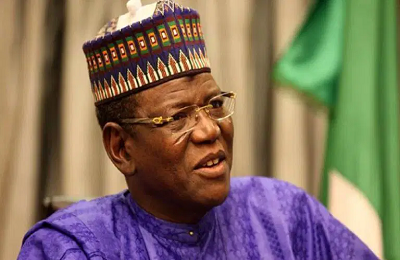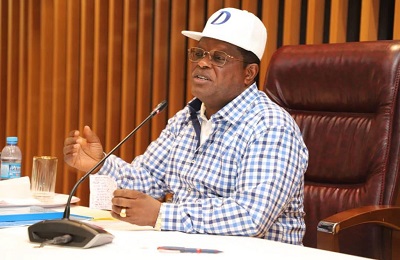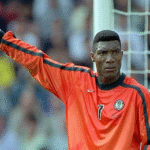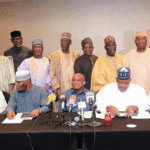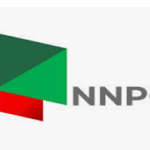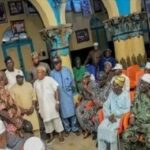Former Jigawa governor signals support if credible coalition selects Labour Party candidate
Abuja – Former Jigawa State Governor Sule Lamido made a surprising political announcement that could reshape the 2027 presidential race. The veteran PDP chieftain declared he would support Peter Obi if a credible coalition selects the Labour Party candidate, signalling a potential shift in Nigeria’s political landscape.
Lamido Breaks Party Lines
In a move that caught many political observers off guard, Lamido prioritised national interest over party loyalty. The seasoned politician, who has spent decades in the PDP, explained his readiness to cross party lines for the right candidate.
“If the coalition produces Peter Obi or anyone else committed to rescuing Nigeria, I will support them. But I remain PDP. We should have outgrown tribal and regional sentiments,” Lamido stated during a candid interview.
His criticism of Nigeria’s zoning system reflects growing frustration among political leaders. Lamido described zoning as a mechanism that once served to heal wounds from the June 12 annulment but now limits the country’s ability to choose competent leaders.
This position places Lamido at odds with traditional PDP strategy, potentially inspiring other party members to consider similar cross-party support.
Middle Belt Weighs Strategic Options
The Middle Belt Forum (MBF) revealed the political calculations happening across northern Nigeria. With limited options emerging from their region, some leaders view Obi’s consistency as increasingly attractive.
MBF President Dr. Bitrus Pogu painted a vivid picture of northern political challenges. “I want to say that a drowning person wouldn’t mind even holding onto a straw, thinking that it will save him. Getting a Northerner to contest is a problem, and they must trust someone consistent, which Peter Obi seems to be,” he explained.
The forum’s pragmatic approach reflects broader concerns about finding viable northern candidates for the 2027 presidential contests. However, Pogu warned that support could evaporate if Obi wavers on his single-term commitment.
This conditional support suggests northern political calculations remain fluid, with trust being the determining factor.
Northern Skeptics Remember Past Promises
Not everyone shares Lamido’s enthusiasm. Several northern leaders carry scars from previous political disappointments, particularly broken promises about term limits.
Arewa Youth Assembly Speaker Alhaji Muhammad Danlami delivered a blunt rejection of single-term pledges. “The North will not accept any presidential candidate who will try to sell the idea of one term because we have once fallen for it in 2011 and were highly disappointed,” he declared.
This reference to 2011 highlights how Goodluck Jonathan’s broken promise still influences northern political thinking. The memory of that betrayal continues to shape voter skepticism more than a decade later.
Anthony Sani, former Secretary General of the Arewa Consultative Forum, questioned the motives behind term-limit promises. “When aspirants pledge to do only one tenure, it makes me feel they are unduly desperate for power and not for service,” he argued.
These voices represent significant resistance that Obi must overcome to build northern support.
Obi’s Growing Northern Appeal
Despite skepticism, the Obidient Movement reports encouraging developments across northern states. Recent events suggest shifting attitudes since Obi’s 2023 presidential campaign.
Global Coordinator Alhaji Tanko Yunusa highlighted concrete examples of growing acceptance. The Pantami Emirate in Gombe State recently honoured Obi with a traditional title, a significant gesture in northern political culture.
“Peter Obi’s offer to serve a single term of four years will undoubtedly assuage concerns. Obi’s acceptance in the North in 2025 is far better than what we saw during the 2023 elections — it’s a genuine paradigm shift,” Yunusa observed.
This grassroots support could prove crucial if political elites like Lamido continue endorsing cross-party collaboration. The combination of elite backing and growing popular acceptance might create momentum for an unlikely political coalition.
The 2027 election landscape appears increasingly unpredictable as traditional party loyalties face pressure from pragmatic political calculations.
By Abdullah Korede

